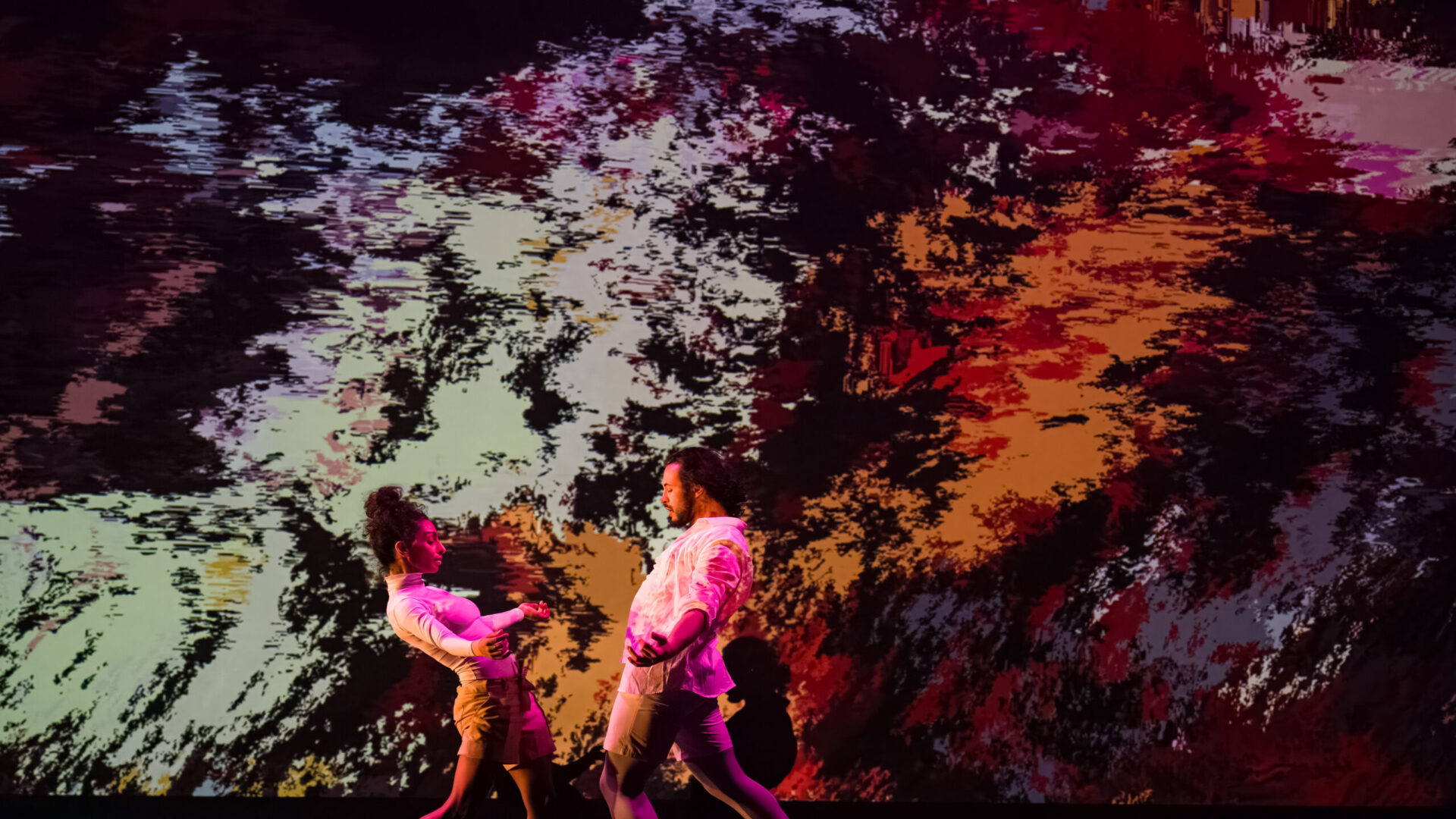Connecting public libraries through telepresence.
Tools: Python, C++
- Read the case study by Catchbox
- Read Le Devoir‘s article by Catherine Lalonde
Bibliolab is a telepresence concept designed and developed by the Société des Arts Technologiques (SAT), a non-profit artistic center based in Montreal, Canada.
It is a physical installation in which users from 2 physically distant spaces can see and hear each other in real-time. As opposed to traditional video-conferencing, telepresence is much more immersive: three projectors and soundbars immerse participants in a 180 degree radius, allowing them to see and interact with the remote participants at a real-life, human scale. Additionally, concealed cameras strategically placed in the projection space allow users to look at each other “in the eyes” and feel as if the other is really “seeing” them, thus reinforcing the immersion.

Bibliolab is also a web application designed for tablets with a React front-end and a Python back-end, communicating together using WebSockets. This application is the heart of Bibliolab: the person in charge of the Bibliolab setup can use it to call other Bibliolab users, get help on how to properly install the various hardware, choose which video stream to display on the screens, etc. Much like Scenic, Bibliolab is based on Switcher, the open-source telepresence engine developed by the SAT’s research center (Metalab).
Bibliolab was the first project I worked for when I arrived at the SAT in 2018. As an Audiovisual Systems Designer (Concepteur système audiovisuel), part of my job was to develop the back-end part of Bibliolab’s web application using Python and Switcher‘s Python API. I had to work closely with both the Metalab and the front-end developer for Bibliolab in order to deploy a complete and robust app in a very tight schedule (about 4 months of development time).
Additionnally, I was in charge of handling the physical aspect of Bibliolab‘s setup: from the projectors to the cameras, down to the precise computer specs and the video capture cards required for the project. I spend countless hours researching the Web reading and comparing specs and a lot of time was spent figuring out the technical requirements of the project. As part of my job, I ordered, tested and compared various audiovisual equipment, and designed the final technical setup of Bibliolab in collaboration with the project’s lead designer.

Bibliolab was deployed for the first time in two Montreal public libraries (Frontenac and Père-Ambroise) as part of the Semaine des bibliothèques publiques in October 2018. A week-long program of activities, including violin classes, games, DJ and VJ exploratory classes and public ‘story times’ for toddlers took place in telepresence between the two libraries to great success.
